Last week was the first time I’d ever been called for jury duty. I put it on the RWW team calendar weeks in advance. I figured I’d miss one day at my desk. I’d spend it sitting in a waiting room, voraciously reading Twitter and shouting from the sidelines. I was wrong. I was chosen for a jury trial that lasted all week. I sat in the voir dire session, answered questions honestly, and before I knew it, I was in the booth.
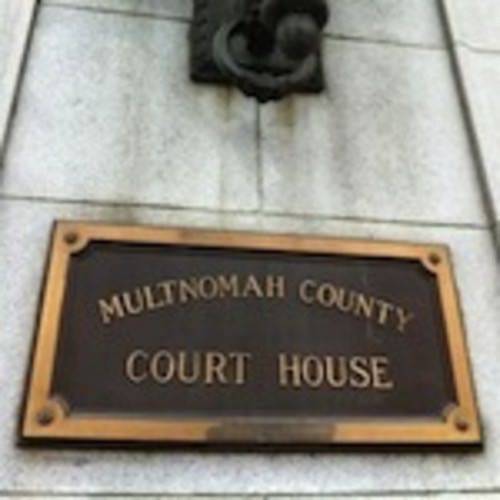
Before long, I could tell why I was chosen. It was a civil case, and practically all the character evidence was in the form of email, Facebook and Myspace posts. That’s all we had to juxtapose with the in-person testimony and figure out who was telling the truth. It was a bit embarrassing at first. What did this have to do with justice? But that became clear. There are lots of new lessons to learn about being civil in an online society, and judges and juries are how we common-law countries work that stuff out.
Spoiler alert. We found for the defense. I’m allowed, but there’s no need to rehash the details of the case here. I’d be happy to talk about it in the comments below. But suffice it to say, the plaintiff was using the court to settle a personal issue with the defendant and her whole former place of work. We didn’t think she deserved money as compensation.
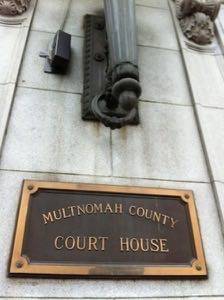
It was fascinating to watch these former colleagues testify for and against each other’s character. We had to be judges of performance. We had massive binders full of of printed online exchanges to weigh against the testimony, and that was how we were to make our judgment.
This was a lesson in how the Web has become a part of our character in both our professional and personal lives. Too much overlap, especially online, can dissolve the work/life boundary altogether. And here we were, 13 jurors tweeting, Facebooking and emailing on breaks, doing our best to reassure our networks that we weren’t just AWOL for a whole week.
I mostly used Path to document the experience, an awesome answer to all my questions about that app. The plaintiff and the defendant were more into Myspace.
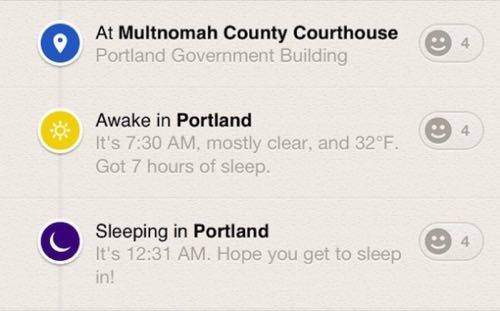
I learned so many lessons about the Web on jury duty last week. Here are just a few.
Write Like What You Say Will Be Read To A Jury
I’m not speaking abstractly here. If you document your life dramas online, and if those dramas end up in court, the lawyers will dig it all up. Work emails are one thing, but people in this case admitted private Facebook messages as character evidence.
The plaintiff deleted one message that would have been a key part of the testimony, and the very omission was damning. After so many of these people’s emails and wall posts had been read to us in the courtroom, we knew what that message said.
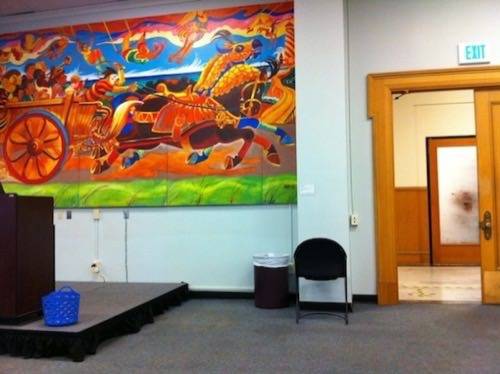
Your Online Life Is Your Character
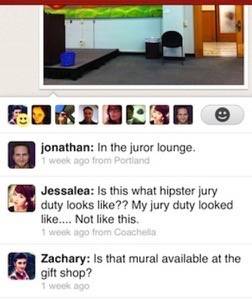
More precisely, if you share your life online, that life can substitute for your character. If these people hadn’t waged so much email war, we would have had to use more traditional methods of assessing their testimony.
Instead, we could weigh their spoken testimony against the words they wrote and sent to one another years ago, when the events of the case were taking place.
You see why they wanted a tech blogger on the jury? Most of us were tech-savvy people. One guy read the New York Times on his Nook Color tablet every morning. I had never held one of those before. On breaks, many of us were tweeting or IMing, and if not, we had to talk about anything but the case. So we talked about what we had been reading, watching and listening to lately. By and large, that meant we were talking about the Web.
This case required the jury to understand and extract meaning from online communications. That was all the evidence we had. And these were not super-nerd early adopter people in this case. They were just people who worked in an office together, and they sometimes used Myspace and Facebook to flirt and fight with each other.
Work/Life Imbalance Online Makes A Mess
We should all know this one by now, but we don’t. The people in this case brought their work dramas home and their social dramas to the office, and email and social networks tied it all together. Ranting about work on Facebook is not smart. Remember, your rants can be read to a jury, and if you delete them, the jury will notice that, too.
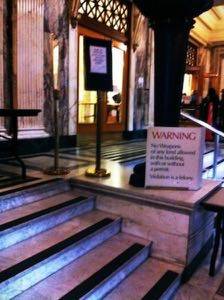
Likewise, if you have personal problems with someone in the office, emailing your other coworkers about it is not a great way to handle it. What we saw on the jury was lots of lost productivity and wasted time, as well as unnecessary and damaging tribalism in the office. That’s nothing new. What’s new is a work email that says “OMG, look what so-and-so said about me on Facebook last night.”
Don’t Friend Your Colleagues… Unless They’re Your Friends!
This is the bottom line. I read an illuminating interview with Tiffani Jones Brown in Contents magazine about her work on the content strategy team at Facebook. These people choose the words you see on Facebook very carefully.
The word “friend” could be any number of things. It means something very different from “follower.” Contrast “friend” with Google+, which doesn’t have a word for your connections. It just says “in your circles.” What do you call people, then? Circlers? Encirclements?
Whatever. That’s Google’s content strategy problem. Facebook chose “friends.” It did so early on, when the only users of Facebook were college friends. Facebook has hundreds of millions of users now, but the word “friends” is still there.
Suffice it to say that, after a while, the people in this case were no longer friends. They didn’t “unfriend” each other until it was too late, though. They ranted in status updates, taking passive aggressive stances they each knew the other would see. It screwed up their whole lives, both socially and professionally.
After seeing what transpired on the witness stand last week, I know this: Facebook is for “friends.” Twitter is for “followers.” LinkedIn is for “connections.” Those words are hints. These networks facilitate our lives now, if we’re the kinds of people who read (or write) tech blogs. We need to use them with good judgment.
I took this shot with my iPhone 4, using Path, as I walked to court on my last morning.

Coincidentally, Dan Benjamin and Andy Ihnatko released this awesome podcast about documenting our digital lives last week. I was listening to it when I took the picture above. I highly recommend it.
Have you served on a jury before? Did the Web factor into the case? Share your experiences in the comments.










